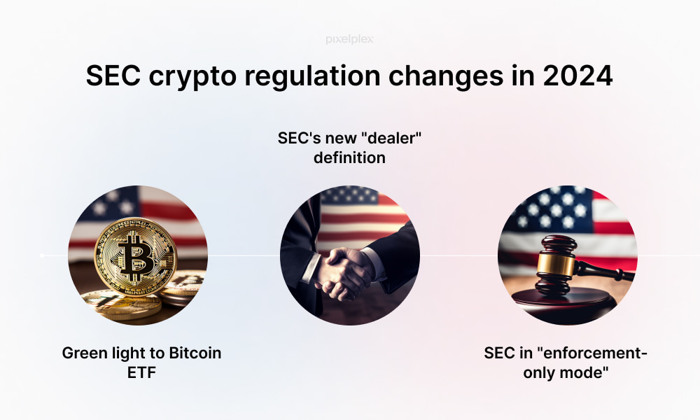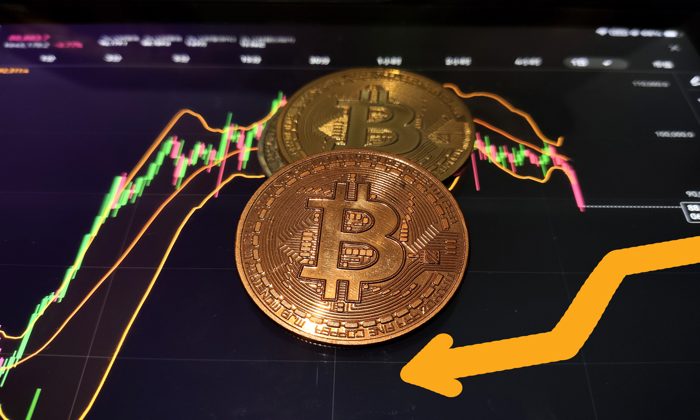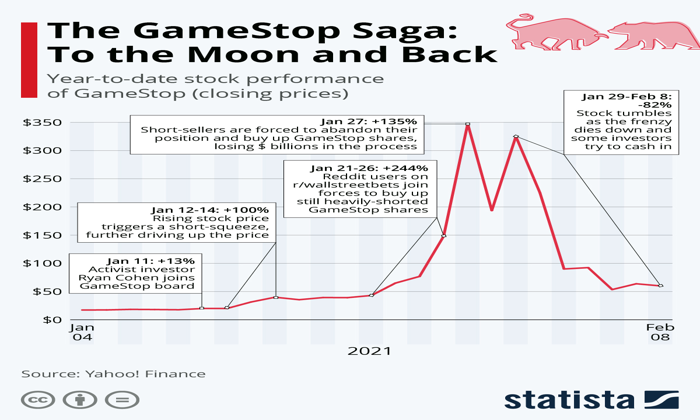The recent developments in SEC crypto regulation mark a significant turning point for the cryptocurrency landscape. On Thursday, the U.S. Securities and Exchange Commission (SEC) dismissed enforcement actions against major players such as Kraken, ConsenSys, and Cumberland DRW, signaling a shift towards a more lenient regulatory environment. This decision fosters a renewed optimism among digital asset companies that have faced legal challenges under previous crypto enforcement actions. Notably, the Kraken SEC case and the dismissal of the ConsenSys lawsuit illustrate the agency’s evolving stance, aiming to enhance clarity in its digital asset policy. As the SEC embarks on a journey to redefine its approach, these changes could alleviate the uncertainty that once threatened to stifle innovation in the crypto industry.
In light of the recent decisions made by the SEC, the conversation regarding digital asset oversight has taken on new life as regulatory frameworks continue to evolve. This transition reflects a broader shift in how financial authorities interact with cryptocurrency entities, particularly in light of the Kraken SEC case and the outcomes of other notable lawsuits. The closure of actions like those against ConsenSys and Cumberland DRW underscores an ongoing reevaluation of regulations surrounding virtual currencies and their associated platforms. As stakeholders within the industry adapt to this regulatory landscape, the focus on establishing clearer guidelines for crypto engagement remains pivotal. Moving forward, open discussions and collaborations will be essential to shaping a beneficial environment for innovation and compliance within the realm of digital finance.
Impact of the SEC’s Dismissal on Crypto Firms
The recent dismissal of enforcement actions against Kraken, ConsenSys, and Cumberland DRW by the U.S. SEC serves as a significant development in the regulation of digital assets. This decision marks a notable shift in the SEC’s approach and could potentially influence how other crypto firms perceive their legal standing in the U.S. market. The dismissals indicate a departure from previously intense regulatory scrutiny, leading to speculation about a more favorable environment for crypto innovation and investment initiatives. As Kraken noted, the resolution alleviates uncertainty that may have hindered their prospects for going public, reinforcing investor confidence in the crypto industry.
Moreover, this sudden pivot in SEC cryptocurrency regulation underscores the important balance regulators must strike between protecting investors and promoting innovation. The regulatory landscape has been tumultuous, particularly under Gary Gensler’s administration, where aggressive enforcement actions were taken against many crypto firms. The new stance taken by acting Chairman Mark T. Uyeda suggests a move towards more constructive dialogue with firms in the space, which may foster an improved regulatory environment and encourage significant investment in digital assets.
The SEC Crypto Regulation: A Gradual Change
The evolving landscape of SEC crypto regulation appears to prioritize collaboration and transparency over strict enforcement actions against crypto firms. By conducting roundtables to facilitate discussions among industry experts, the SEC aims to create a more informed regulatory framework for digital assets. These initiatives, led by Commissioner Hester Peirce, signify a commitment to understanding the nuanced operations of the crypto industry, rather than merely reacting with punitive measures. The outcomes of these discussions are likely to influence future regulatory policies and set a precedent for how the SEC interacts with the crypto sector going forward.
This broader effort to refine digital asset policies aligns with the SEC’s goals to clarify rules and guidelines that govern crypto transactions and operations. The prioritization of open communication with stakeholders may foster a sense of industry partnership, which is crucial for building trust and facilitating innovation. As seen with the dismissal of high-profile enforcement cases, the SEC seems poised to evaluate each situation individually without imposing blanket regulations that may stifle growth. This nuanced approach could empower firms to develop innovative solutions while adhering to an evolving regulatory framework.
Understanding Crypto Enforcement Actions
Crypto enforcement actions are legal measures taken against cryptocurrency firms or platforms that the SEC believes are violating securities laws. The recent dismissals of cases against Kraken, ConsenSys, and Cumberland DRW highlight the complexities involved in enforcing regulations in a rapidly evolving digital asset landscape. Previous enforcement actions under the Gensler administration have sometimes resulted in widespread fear within the industry, creating a chilling effect on innovation and investment. The resolution of these cases marks an essential turning point, demonstrating the importance of context and individual circumstances in enforcement efforts.
The SEC’s renewed discretion regarding crypto enforcement actions suggests that the agency is now taking a more considered approach after assessing the implications of its policies. This is particularly relevant as the SEC navigates a spectrum of cases, from those involving significant complaints to routine compliance checks within the industry. By focusing on engagement and transparency, the agency can foster a healthy environment for crypto firms to operate, thereby supporting one of the most dynamic sectors in the financial markets today.
Case Studies: Kraken, ConsenSys, and Cumberland DRW
The recent dismissal of cases against Kraken, ConsenSys, and Cumberland DRW provides a lens into how the SEC evaluates crypto firms. Kraken’s case, which alleged the operation of an unregistered securities exchange, raised significant concerns in 2023, but the recent joint stipulation to drop the case reflects a considerable change in the SEC’s regulatory mindset. This not only lifts the cloud of uncertainty over Kraken but also signals to other firms that compliance and legal strategies may be more favorable in this evolving landscape.
Similarly, ConsenSys faced serious allegations regarding the unlawful offering of securities through its MetaMask Staking service. The termination of this lawsuit suggests that the SEC is now more willing to engage with companies to address concerns without resorting to litigation. With Cumberland DRW also stepping back from a lawsuit that accused them of being an unregistered dealer, the SEC’s recent actions highlight the transition towards a more collaborative regulatory approach, emphasizing guidance over enforcement.
The Future of Digital Asset Policy in the U.S.
The dismissal of enforcement actions against major crypto firms has prompted discussions about the future of digital asset policy in the United States. As the SEC shifts its focus towards improving transparency and encouraging dialogue, it opens the door for more structured and clear policies that can further integrate cryptocurrency into the traditional financial ecosystem. By actively engaging with industry stakeholders, the SEC is making strides toward crafting regulations that foster innovation while ensuring investor protection.
Furthermore, this change indicates a willingness from the SEC to reassess its stance on digital assets. With marked changes in leadership and operational focus, the potential for a regulatory framework that supports growth in the crypto sector is on the horizon. As more roundtable discussions are planned and existing cases are reevaluated, there is a sense of optimism that future regulations will better reflect the realities of the crypto market, ultimately benefiting both regulators and industry players.
Legal Ramifications of Dropped Crypto Cases
The legal ramifications of the SEC’s decision to drop cases against significant crypto firms cannot be understated. For companies like Kraken, ConsenSys, and Cumberland DRW, the resolution of these cases is not just a legal victory; it represents a chance to operate without the weight of ongoing litigation. The implications extend beyond these companies, providing a signal to the broader market that the SEC might pivot towards a more facilitative rather than a strictly regulatory role in the near future.
Moreover, the dropped cases may also set precedents for how future enforcement actions are approached by the SEC. As firms in the crypto space seek clarity on regulatory expectations, this paradigm shift could lead to more comprehensive and industry-specific guidelines. Such a development would help align the interests of regulators and market participants, enhancing the overall integrity of the crypto ecosystem while ensuring that innovation is not stifled by overregulation.
Reactions from the Crypto Industry
The crypto industry has responded positively to the SEC’s recent dismissal of enforcement actions, interpreting it as an endorsement of their operational models. Companies like Kraken have expressed relief, emphasizing that this change alleviates uncertainty and encourages further investment in the sector. The dismissal is seen as an affirmation of the industry’s value and potential, which is crucial for market stability and growth. Enthusiastic responses from industry stakeholders reflect a renewed sense of optimism about engaging with the SEC in a constructive manner moving forward.
Industry leaders have also noted that the SEC’s change in approach could be instrumental in attracting institutional investors, who have historically been wary of the crypto space due to regulatory ambiguity. By establishing a more favorable regulatory environment, the SEC may facilitate increased capital inflow into cryptocurrencies, driving innovation and technological advancements within the sector. This renewed engagement with regulators signifies a promising turning point for crypto firms looking to navigate compliance effectively while pursuing substantial growth.
Future Roundtables on Crypto Regulation
The SEC’s announcement of upcoming roundtables focused on crypto regulation indicates a progressive effort to refine the regulatory framework governing digital assets. Scheduled from April to June, these discussions aim to engage industry experts in addressing current issues and exploring potential regulatory pathways. Such roundtables represent an opportunity for crypto firms to voice their concerns, share insights, and contribute to crafting policies that better reflect the dynamics of the crypto market.
Through these open discussions, the SEC can gather diverse perspectives that will inform their future actions regarding digital assets. The involvement of various stakeholders is essential for recognizing the complexities inherent in crypto markets and establishing regulations that not only protect investors but also encourage innovation. As the SEC takes these proactive steps, the industry anticipates a more adaptable regulatory infrastructure that aligns with the evolving digital economy.
The Role of SEC in Shaping Crypto Regulation
The SEC plays a pivotal role in shaping the future of crypto regulation in the United States, acting as both a guardian of investor interests and a facilitator of innovation. By reevaluating its approach to enforcement actions, as demonstrated by recent dismissals, the SEC signals its commitment to creating a balanced regulatory environment. This evolution reflects the agency’s recognition of the unique characteristics of digital assets and the need for regulatory frameworks that can safely promote their growth within the financial landscape.
Moreover, the SEC’s strategies, including hosting roundtables and engaging directly with crypto firms, highlight the importance of creating a collaborative atmosphere. This collaborative approach not only aids the SEC in gathering crucial insights but also fosters trust and transparency within the industry. As the SEC continues to adapt its role, the long-term outlook for crypto regulation appears to lean towards greater inclusion and support for innovation while maintaining essential protective measures for investors.
Frequently Asked Questions
What does the SEC’s dismissal of enforcement actions mean for crypto regulation?
The SEC’s recent dismissal of enforcement actions against major crypto firms like Kraken, ConsenSys, and Cumberland DRW LLC signifies a notable shift in its regulatory approach toward digital assets. It may indicate a move towards clearer and more transparent crypto regulations as the agency seeks to rectify its previous enforcement practices.
How does the Kraken SEC case impact the future of crypto exchanges?
The Kraken SEC case dismissal marks a pivotal moment for crypto exchanges, potentially reducing regulatory uncertainty that could stifle innovation. As Kraken strengthens its prospects to go public, it sets a precedent for other crypto firms to follow in a more favorable regulatory environment.
What lessons can be learned from the ConsenSys dismissal regarding SEC crypto regulation?
The dismissal of the ConsenSys case highlights the SEC’s evolving stance on crypto regulation. The action reflects the Commission’s intent to foster a more supportive atmosphere for digital asset platforms, encouraging innovation instead of aggressive enforcement that may hamper growth.
What does the Cumberland DRW lawsuit dismissal say about the SEC’s current enforcement strategy?
The dismissal of the Cumberland DRW lawsuit indicates a shift away from the stringent regulatory tactics previously employed under former Chair Gary Gensler. With acting Chairman Mark T. Uyeda now leading, the SEC seems to be focusing on collaboration with the crypto industry to develop effective digital asset policies.
How are recent SEC crypto enforcement actions shaping the future of digital asset policy in the U.S.?
The recent dismissals of SEC crypto enforcement actions are shaping a more collaborative framework for digital asset policy in the U.S. By engaging in discussions and roundtables, the SEC aims to better understand the complexities of the crypto landscape, enabling the development of effective and clear regulations.
Will the SEC’s dismissal of cases affect the crypto industry’s growth?
Yes, the SEC’s dismissal of enforcement actions against crypto firms is likely to bolster the industry’s growth. By reducing regulatory burdens and fostering a clearer regulatory environment, firms are encouraged to innovate and expand, which can ultimately benefit the entire digital asset market.
What is the significance of the SEC’s ongoing crypto roundtables?
The SEC’s crypto roundtables are significant as they provide a platform for experts to discuss regulatory challenges and insights, allowing the SEC to adapt its policies accordingly. This approach emphasizes the importance of stakeholder engagement in shaping effective digital asset regulations.
How does the SEC’s recent enforcement action dismissal differ from past tactics?
The SEC’s recent decision to dismiss enforcement actions against companies like Kraken and ConsenSys contrasts with the previous administration’s harsh enforcement tactics. Under acting Chairman Uyeda, there is a clear shift towards dialogue and transparency in developing crypto regulations.
What does the closure of the Crypto.com case suggest about SEC crypto regulation?
The closure of the Crypto.com case further suggests a brand-new perspective within the SEC regarding crypto regulation. By wrapping up various enforcement actions, the SEC is signaling a potential move towards establishing frameworks that support growth while ensuring compliance within the digital asset sector.
Are the SEC’s enforcement actions against crypto firms likely to resume in the future?
While the dismissals indicate a current pivot in the SEC’s approach, future enforcement actions could depend on how the regulatory framework evolves. The SEC has emphasized that dismissals do not alter its stance on the regulatory status of other firms, and ongoing oversight will remain.
| Key Point | Details |
|---|---|
| Dismissal of Lawsuits | The SEC dismissed enforcement actions against Kraken, ConsenSys, and Cumberland DRW LLC, signaling a shift in regulatory approach. |
| Closed Cases | The SEC also closed its case against Crypto.com. |
| Historical Context | The dismissals are part of broader changes in U.S. crypto regulation, including previous cases against other major firms. |
| SEC Statement | Acting Chairman Uyeda mentioned efforts to develop clearer and more transparent crypto policies. |
| Industry Impact | Kraken welcomed the decision, citing it as a relief from uncertainty that could hinder innovation. |
| Future Engagements | The SEC plans to host roundtables on crypto regulations from April to June to gather expert insights. |
| Task Force Establishment | Under Chairman Uyeda, a new SEC task force aims to engage with the crypto industry more actively. |
| Allegations Dropped | Serious allegations against the three firms have now been resolved after the dismissals. |
Summary
SEC Crypto Regulation has undergone a significant transformation with the recent dismissal of enforcement actions against major crypto firms such as Kraken, ConsenSys, and Cumberland DRW LLC. This shift represents a move toward a more transparent regulatory framework, as indicated by the SEC’s efforts to rectify its previous approach under the previous administration. The decision not only provides clarity for these firms but also opens the door for innovation and investment in the rapidly evolving digital asset landscape. As the SEC engages with industry experts in upcoming roundtables, it underscores a commitment to developing coherent regulations that will guide the future of crypto in the United States.
The recent developments in SEC Crypto Regulation have sent ripples through the entire digital asset landscape as the U.S. Securities and Exchange Commission (SEC) officially dismissed enforcement actions against Kraken, ConsenSys, and Cumberland DRW. This significant shift marks a pivotal moment in how the SEC handles crypto enforcement actions, signaling a potential departure from its previously aggressive stance under regulatory leadership. Highlighted by the Kraken SEC case, these dismissals not only alleviate uncertainties for the companies involved but also indicate a broader change in the regulatory approach towards digital assets. Moreover, the SEC’s closure of the Crypto.com case adds another layer to the evolving digital asset policy landscape in the U.S. With this newfound clarity, industry players hope for an environment that fosters innovation rather than inhibits it.
Exploring the topic from a broader perspective, the recent adjustments in U.S. cryptocurrency regulation highlight a shift in regulatory frameworks governing the digital asset sphere. The decisions made by the SEC reflect an intent to reshape its enforcement strategy, particularly in light of high-profile cases like the ConsenSys dismissal and the Cumberland DRW lawsuit. As the landscape of virtual currencies continues to evolve, the emphasis on transparent policies is becoming increasingly vital for stakeholders across the board. These updates not only stem from the regulatory experiences of notable firms but also signify a call for collaboration between the SEC and industry participants to create a more conducive environment for digital innovation. As this space matures, we are likely to witness ongoing dialogue and potential reforms aimed at balancing regulation with the need for growth and investment in the crypto ecosystem.















